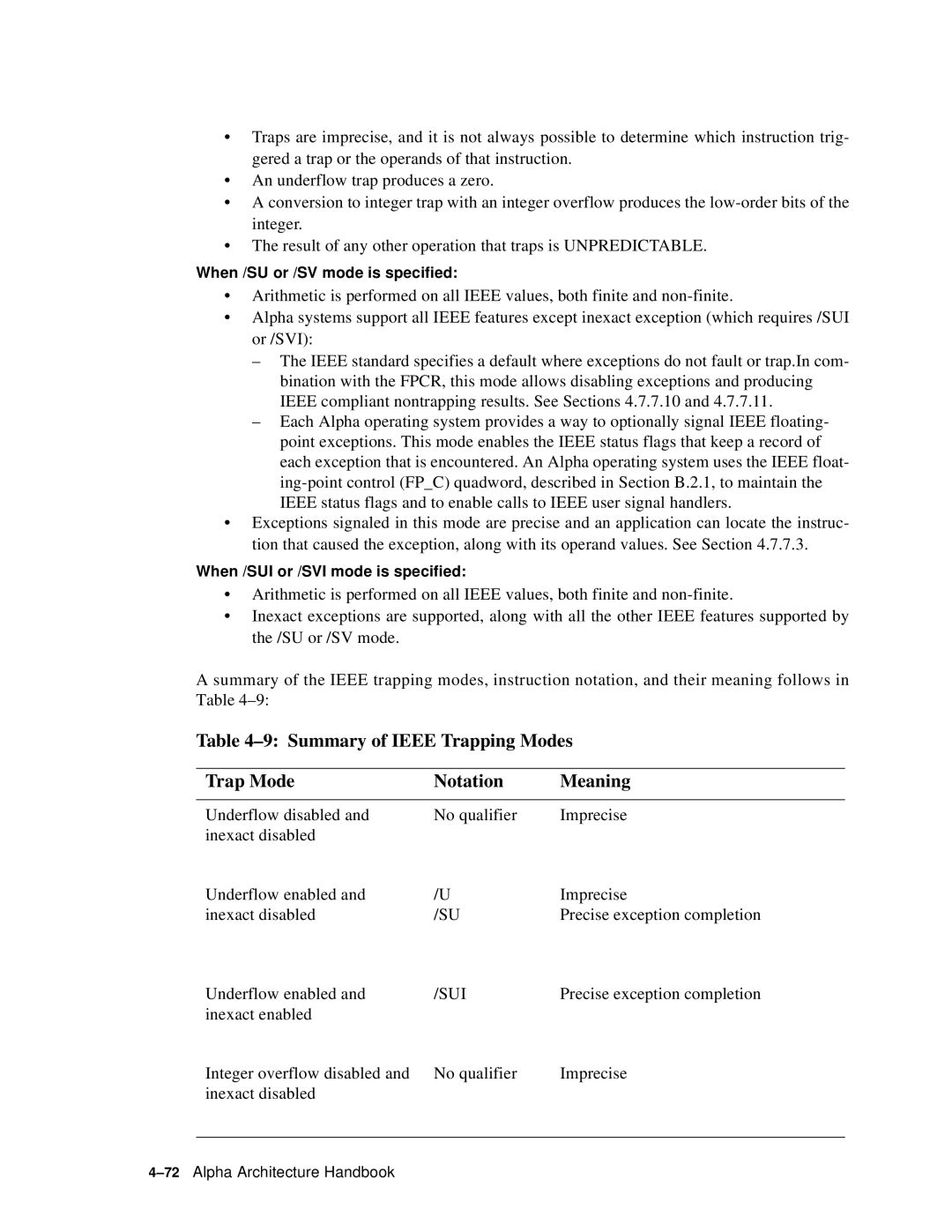
•Traps are imprecise, and it is not always possible to determine which instruction trig- gered a trap or the operands of that instruction.
•An underflow trap produces a zero.
•A conversion to integer trap with an integer overflow produces the
•The result of any other operation that traps is UNPREDICTABLE.
When /SU or /SV mode is specified:
•Arithmetic is performed on all IEEE values, both finite and
•Alpha systems support all IEEE features except inexact exception (which requires /SUI or /SVI):
–The IEEE standard specifies a default where exceptions do not fault or trap.In com- bination with the FPCR, this mode allows disabling exceptions and producing IEEE compliant nontrapping results. See Sections 4.7.7.10 and 4.7.7.11.
–Each Alpha operating system provides a way to optionally signal IEEE floating- point exceptions. This mode enables the IEEE status flags that keep a record of each exception that is encountered. An Alpha operating system uses the IEEE float-
•Exceptions signaled in this mode are precise and an application can locate the instruc- tion that caused the exception, along with its operand values. See Section 4.7.7.3.
When /SUI or /SVI mode is specified:
•Arithmetic is performed on all IEEE values, both finite and
•Inexact exceptions are supported, along with all the other IEEE features supported by the /SU or /SV mode.
A summary of the IEEE trapping modes, instruction notation, and their meaning follows in Table
Table 4–9: Summary of IEEE Trapping Modes
Trap Mode | Notation | Meaning |
|
|
|
Underflow disabled and | No qualifier | Imprecise |
inexact disabled |
|
|
Underflow enabled and | /U | Imprecise |
inexact disabled | /SU | Precise exception completion |
Underflow enabled and | /SUI | Precise exception completion |
inexact enabled |
|
|
Integer overflow disabled and | No qualifier | Imprecise |
inexact disabled |
|
|
